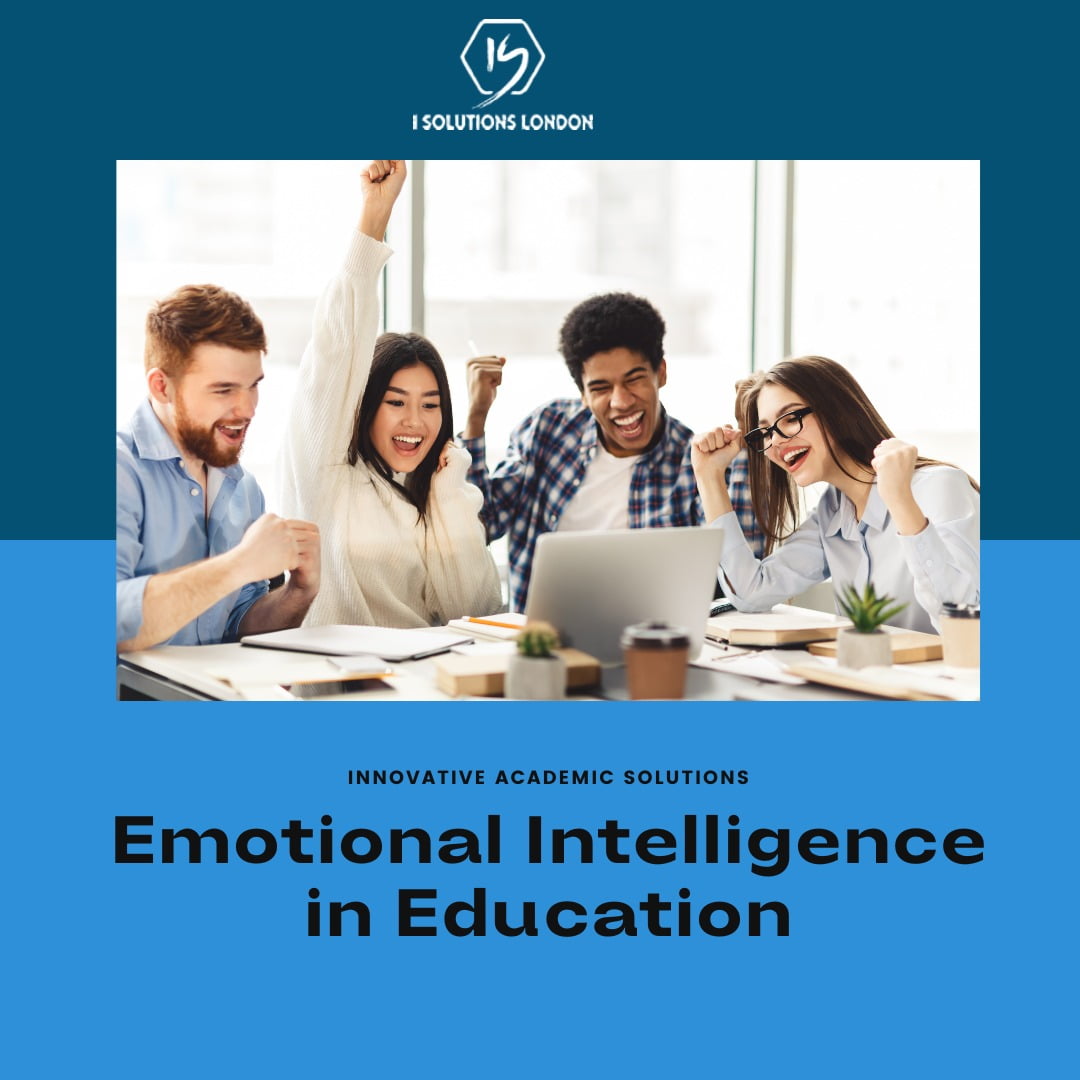
The Importance of Emotional Intelligence in Education – Innovative Academic Solution
In today’s fast-paced world, where academic success often takes center stage, emotional intelligence (EQ) is sometimes overlooked. However, research and experience have shown that EQ is just as important as IQ when it comes to achieving success in life. Emotional intelligence, the ability to understand and manage one’s emotions and those of others, plays a crucial role in personal well-being, social interactions, and academic performance.
What is Emotional Intelligence?
Emotional intelligence encompasses five key components: self-awareness, self-regulation, motivation, empathy, and social skills. These elements enable individuals to navigate social complexities, build positive relationships, and make informed decisions.
Self-Awareness and Self-Regulation: Self-awareness involves recognizing and understanding one’s emotions, while self-regulation is about managing these emotions effectively. Students with high EQ can control impulses, stay focused on tasks, and handle stress better, which directly impacts their academic performance.
Empathy and Social Skills: Empathy, the ability to understand others’ emotions, fosters better communication and teamwork. Social skills, on the other hand, are crucial for building relationships, resolving conflicts, and leading groups. In an educational setting, these skills help students collaborate effectively and contribute to a positive learning environment.
EQ vs. IQ: The Balance in Education
For decades, the emphasis in education has been on intellectual ability, often measured by IQ. However, as the workplace and society evolve, the importance of EQ is becoming more apparent. While IQ may open doors, EQ is what helps individuals succeed in both personal and professional realms.
The Shift in Educational Focus: Schools and educators are beginning to recognize the need to balance academic achievements with emotional and social learning. Programs that integrate EQ into the curriculum are gaining traction, as they equip students with the tools needed to manage emotions, build resilience, and foster positive relationships.
Examples of EQ in Education: Several schools around the world have implemented EQ-focused programs with great success. For instance, the RULER program developed by Yale University teaches emotional literacy to students, leading to improved academic performance, better relationships, and reduced anxiety and depression.
Strategies to Develop Emotional Intelligence in Students
Educators play a crucial role in developing students’ emotional intelligence. By incorporating EQ-building activities into the classroom, teachers can help students enhance their emotional and social skills.
Practical Activities: Activities such as mindfulness exercises, role-playing scenarios, and group discussions can help students become more aware of their emotions and how to manage them. Teaching students to recognize and label their emotions is the first step in developing self-awareness and empathy.
Modeling and Reinforcement: Teachers also contribute by modeling emotional intelligence in their interactions with students. By demonstrating empathy, effective communication, and emotional regulation, educators set a positive example for students to follow.
Conclusion:
Emotional intelligence is an essential component of a well-rounded education. As educators and parents, fostering EQ in students is vital for their long-term success and well-being. By prioritizing emotional intelligence alongside traditional academics, we can better prepare students for the challenges and opportunities that lie ahead, both in school and in life.
Read more: Role of Technology in Modern Education

